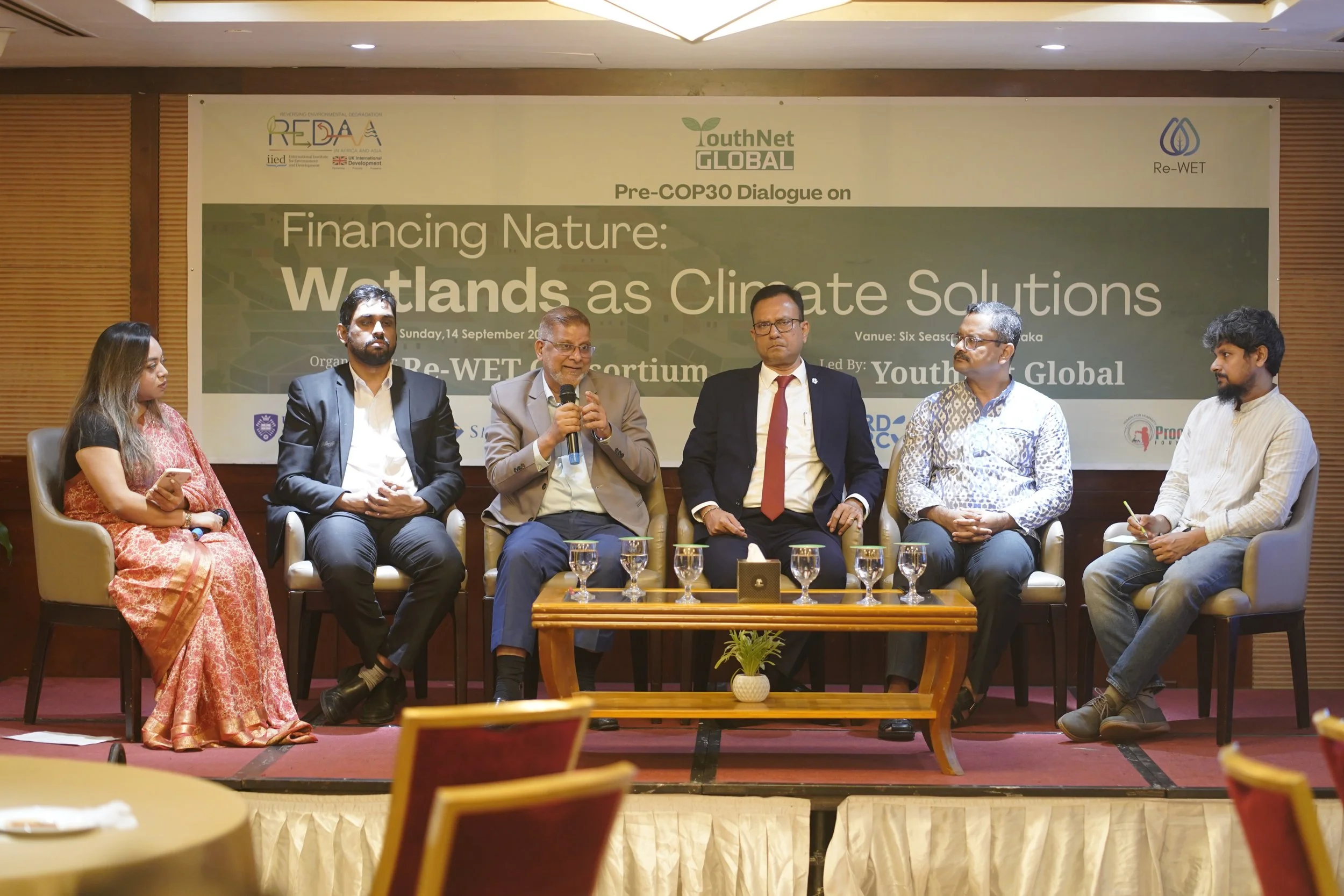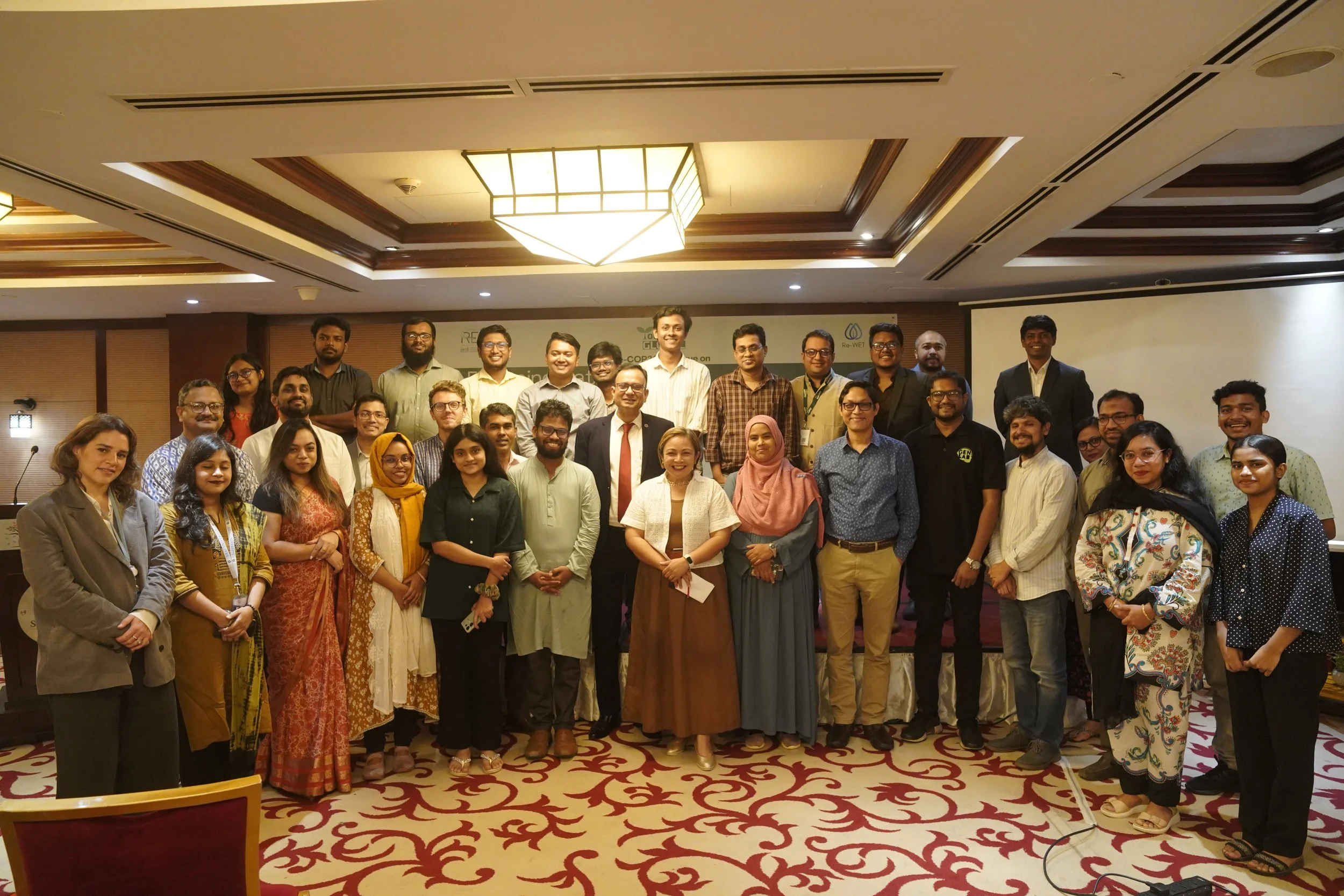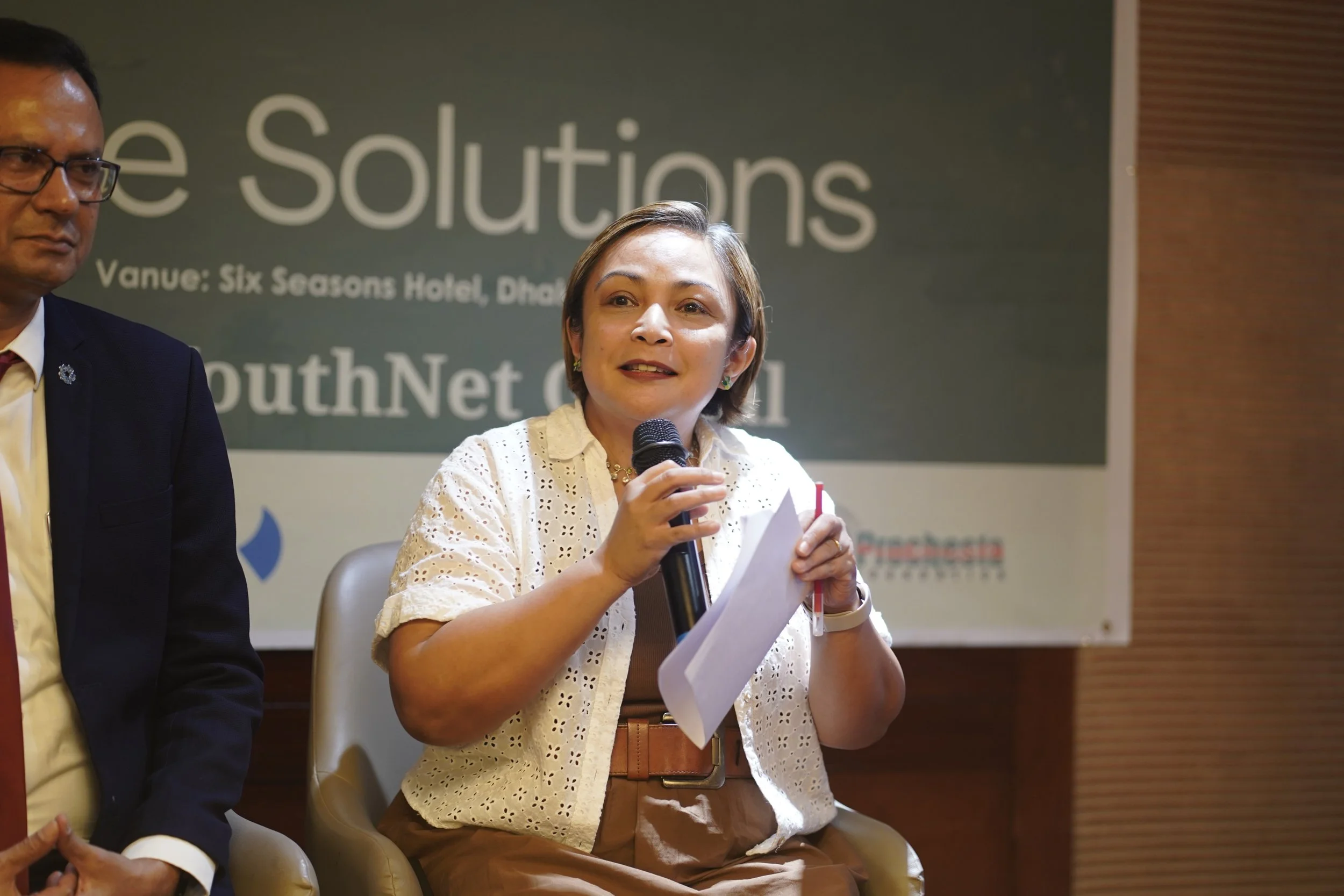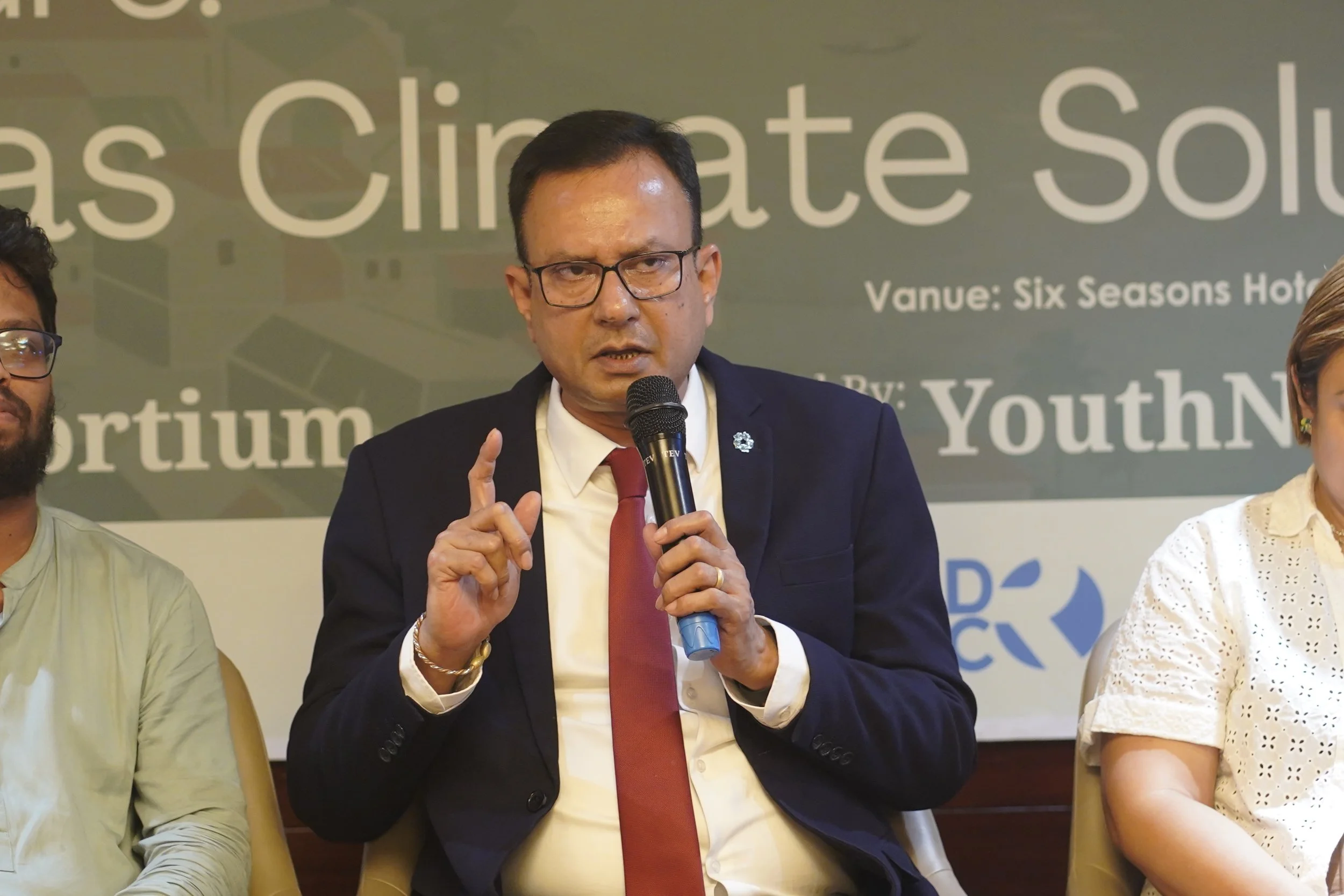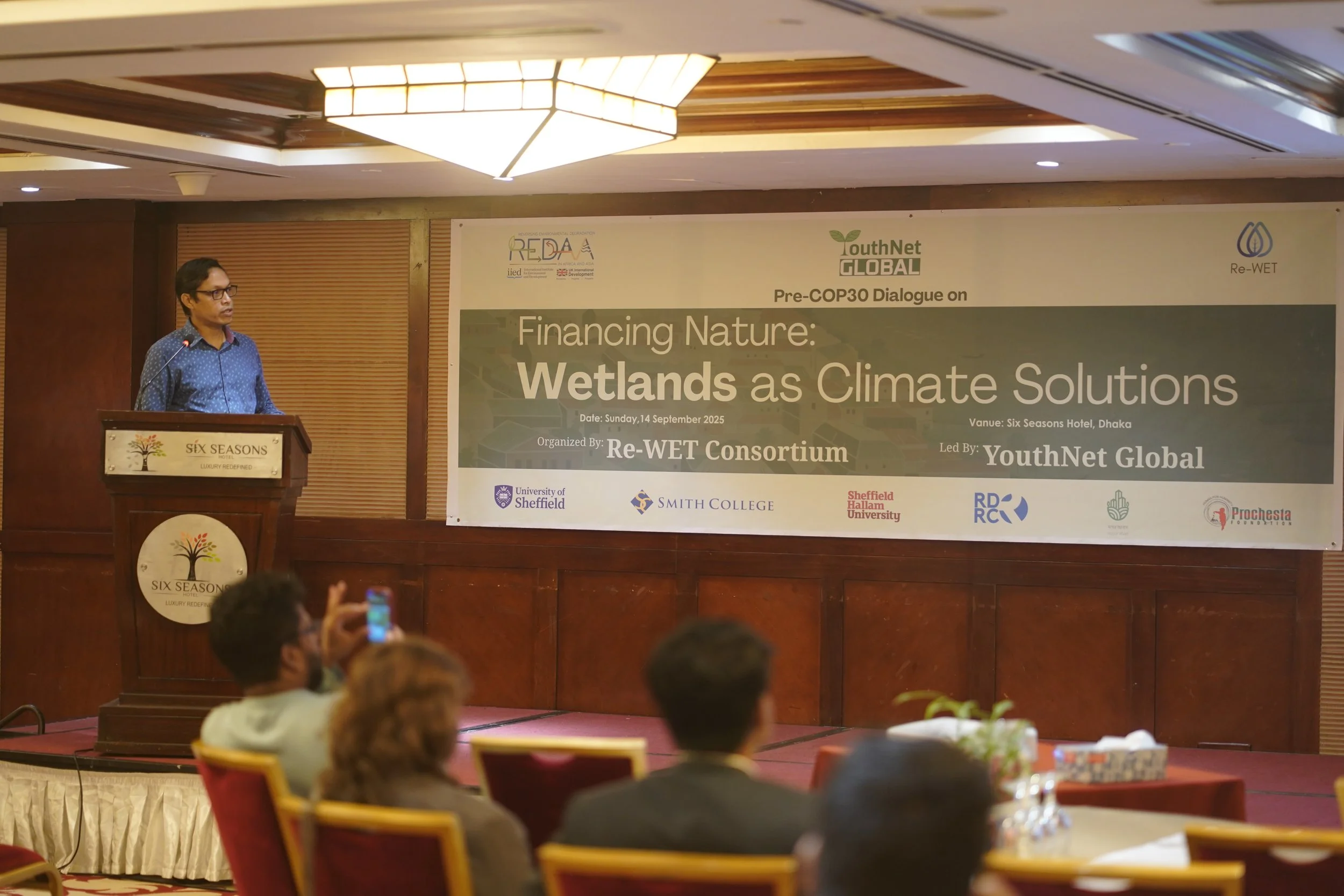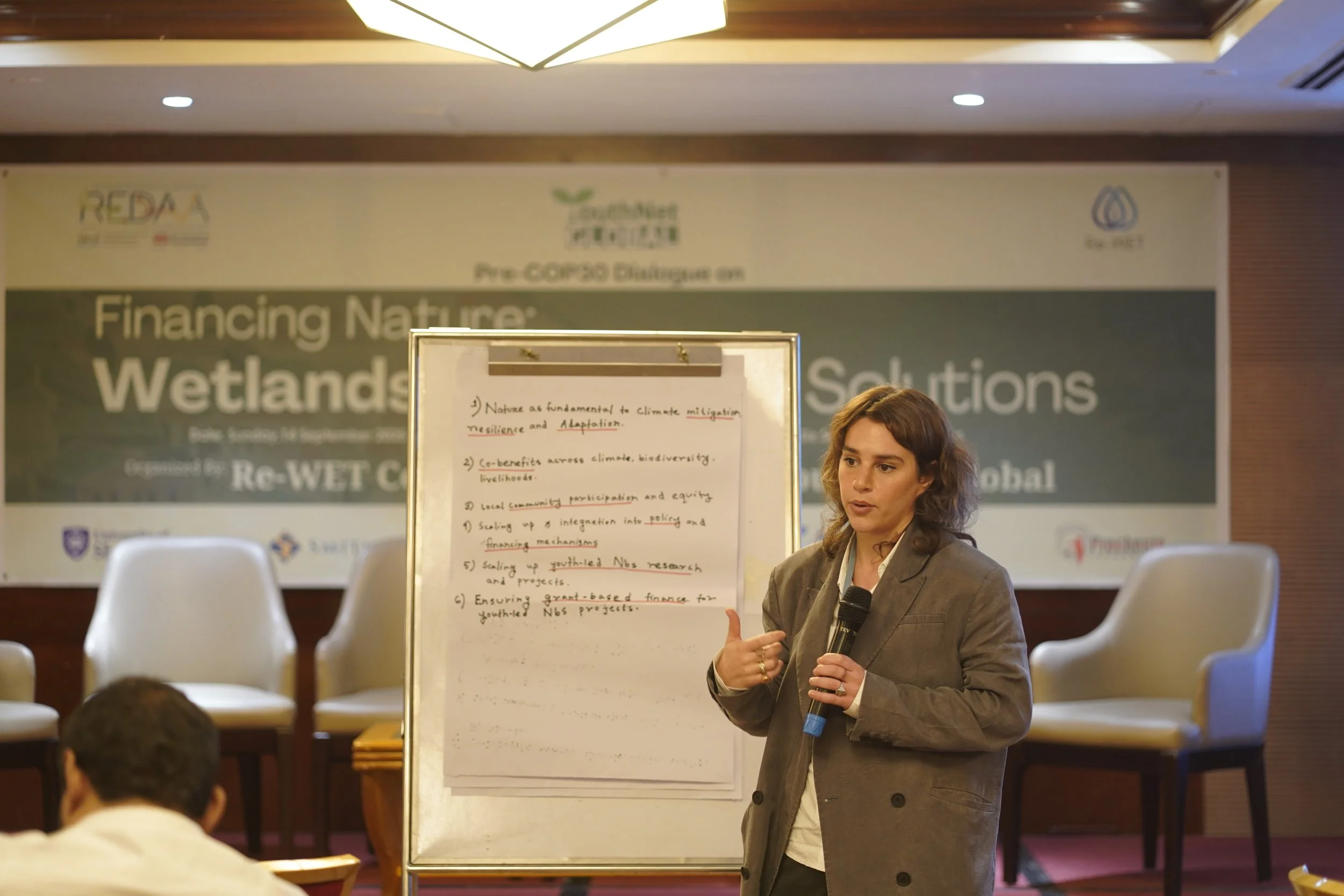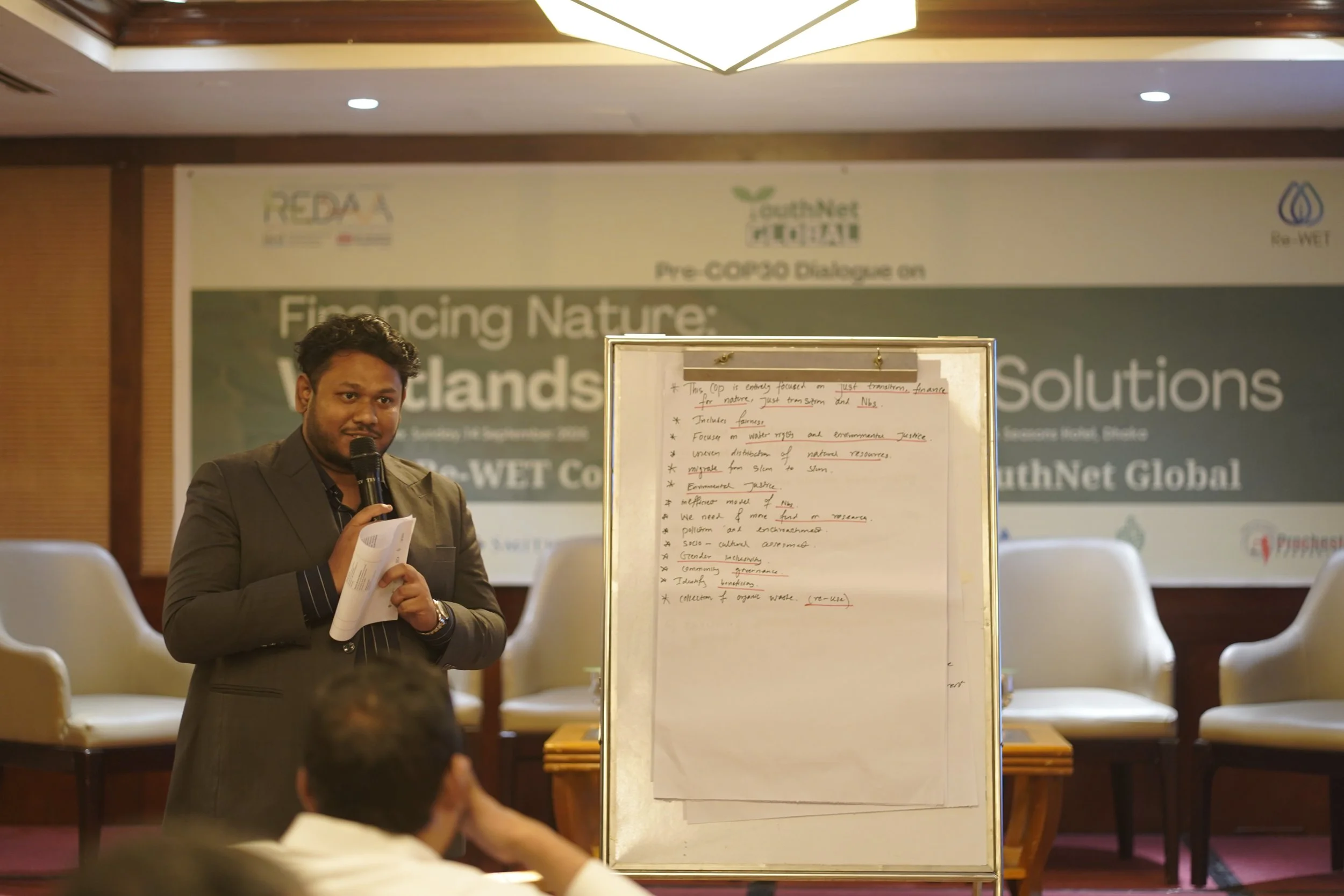From Wastelands to Living Infrastructures: Wetlands and the Future of Climate Finance
Wetlands, Finance, and the Future of Cities
When we started the ReWET project, we set ourselves a challenge: to reimagine wetlands not as “leftover” land or peripheral ecosystems, but as central to how we think about climate, cities, and finance. This past week, that vision took a major step forward.
Thanks to YouthNet Global, who led on behalf of the ReWET Consortium, we convened the Pre-COP30 Dialogue on “Financing Nature: Wetlands as Climate Solutions” in Dhaka. This was no ordinary workshop. It was a breakthrough moment in building new conceptual infrastructure for how climate finance can flow into protecting, restoring, and valuing nature.
Breaking New Grounds in Climate Finance
Our discussions made one thing clear: wetlands are not just ecological buffers. They are climate-critical infrastructure, vital for flood protection, food security, biodiversity, and urban resilience. Yet traditional finance systems rarely recognize them as such.
At the dialogue, we worked across government, financial institutions, communities, and youth to explore new pathways:
Innovative instruments like green bonds and debt-for-nature swaps.
Justice-centered approaches where locally led adaptation drives investment decisions.
A proposed Dhaka Wetland Restoration Trust Fund to ensure long-term, community-centered financing.
Youth Leadership at the Core
Equally groundbreaking was the way this event was designed and delivered. YouthNet Global placed young leaders and community voices at the heart of the conversation, not at the margins. Their energy and creativity shaped the agenda—reminding us that the future of climate justice is not a technical matter, but a generational one.
Rethinking Cities and Nature
What emerged is bigger than finance. It is about rethinking the very relationship between cities and nature. Wetlands are no longer “wastelands.” They are living infrastructures—spaces of care, livelihood, and resilience. To fund them is to invest in a future where ecological health and human dignity are inseparable.
This is the ethos of ReWET: building bridges between grassroots knowledge, academic expertise, and policy innovation. The Pre-COP30 dialogue was only one step, but it was a generative one—and it shows what’s possible when we rethink climate finance through the lens of wetlands.
A huge thank you again to YouthNet Global for leading on behalf of the consortium, and to all the partners and participants who helped make this milestone possible.
Read more
https://theclimatewatch.com/wetlands-must-be-central-to-climate-finance-experts-urge-at-pre-cop30-dialogue/#:~:text=ASM%20Marjan%20Nur%20from%20the,recognized%20as%20climate%2Dcritical%20infrastructure.
